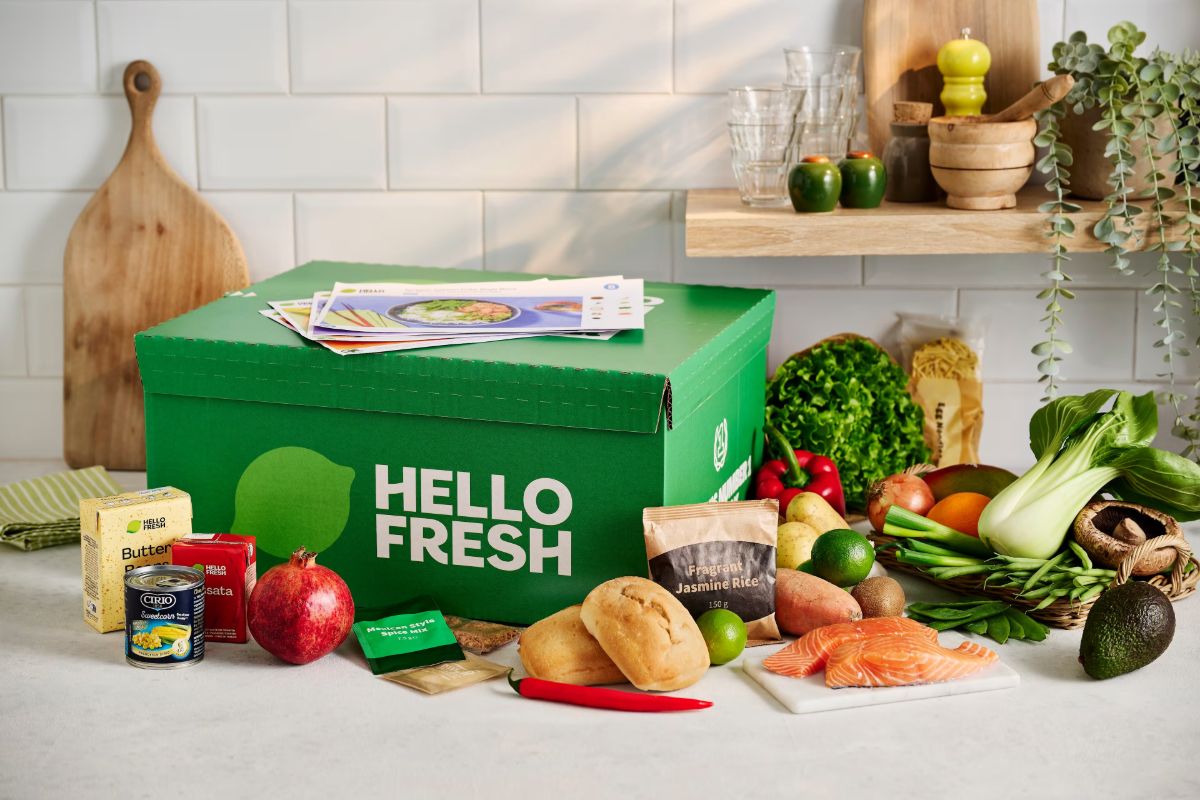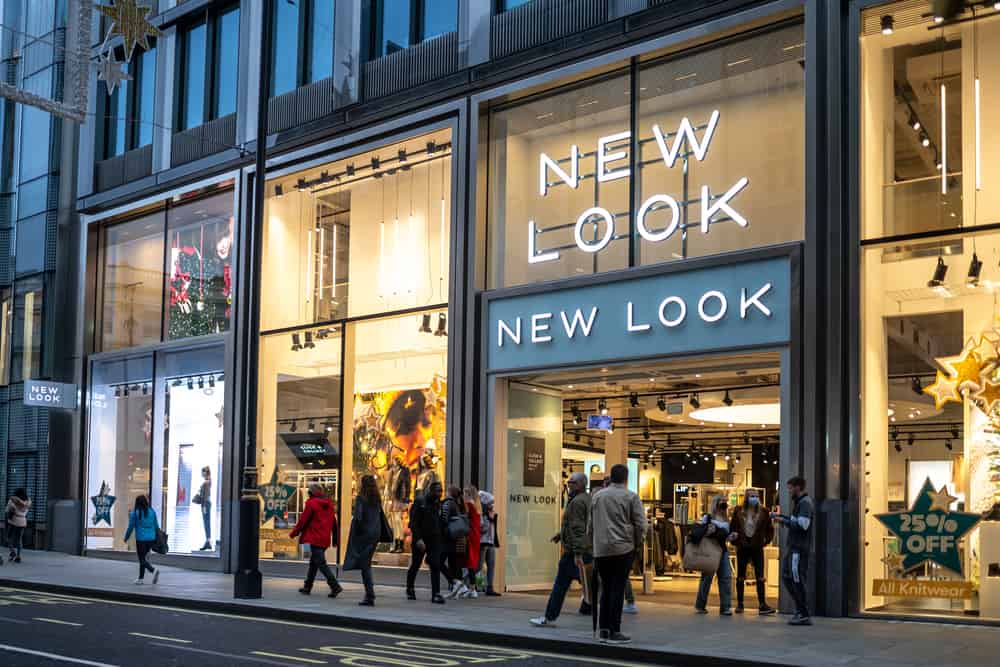Christmas Day 2018 will be the new Boxing Day for retail: prediction
Shoppers will spend just short of £1bn on Christmas Day itself, predicts online sales aggregator LovetheSales.com. It says that over the course of December 25, shoppers will spend £995m – or £83 each – with traffic spiking from 3pm onwards. Overall, spending is set to come in at a rate of per minute of £694,444. This, it says, will represent an increase of 11% on last year, since in 2017 consumers spent £895m online in the hunt for deals.
Stuart McClure, founder of LovetheSales.com, said:”Over the last few years we have seen growth of around 12% year-on-year for Xmas day, but we have also seen an increase of the overall Christmas spend by consumers happening in November, rather than December. This year we think the YoY growth will be slightly less, meaning we probably won’t hit the much hyped £1bn mark.”
The following day, it expects to see spending reaching £1.1bn – or £92 per person. That’s up by around 5% up on last year, when £1.03bn was spent. “The last few years has seen a significant trend of spend occurring on Boxing Day, rather than Xmas Day,” said McClure. “Year on year growth is going up for Xmas Day, but down for Boxing Day. We’ll see growth this Boxing Day, but probably only around 5%.”
The Boxing Day sales have already started at many retailers. The Carphone Warehouse event started today, and it’s offering savings on handsets and SIM deals that are available online and in store with ’in time for Christmas’ delivery. The retailer says that during Black Friday it saw an uplift in orders of 424% for sim free, and 133% on pay as you go handsets, week on week and it is is predicting “more of the same for these early Boxing Day deals”. Sister site Currys is offering 30% discounts on last-minute Christmas gifts, while Game is also in full sales mode.
LovetheSales.com says that right now 40% of all online products are discounted – by an average of 36% – and that’s expected to rise to above 50% on Christmas Day, and to an average of 37%.
Last year, 39.5% of products were discounted in the week before Christmas, with an average of 34%. By Christmas Day, 50% of products were on sale and discounts ran at an average 37%.
November sales figures
The first figures are in for November’s retail sales performance. The IMRG/Capgemini eRetail Sales Index shows online sales growing by 8% compared to last year, while the ONS Retail Sales Report shows online sales up by 13% on last year – but up by 36% on last month. Both show relatively restrained growth compared to the same time last year. Shoppers spent more in November 2018 than they did in November 2017, but the annual rate of growth seems to be slowing. That’s perhaps not surprising given the relatively slow rate of wage growth.
However, it’s also clear from the ONS figures that online sales grew rapidly compared to the previous month. Department store online sales, for example, were up by more than 70% in November, compared to October. But is this a cause for celebration, or does it suggest that October sales were particularly weak, and November’s growth was from a very low base? It’s hard to know without seeing all the underlying figures, but with shoppers spending £1.8bn a week over the internet in November, it seems they weren’t entirely cutting out the treats.
Whether these sales were profitable for retailers, given the high level of discounting taken to achieve them, remains to be seen in the New Year.
Rise in online shopping results in deliveries slowing down: study
More shopping is taking place online this year – but it seems deliveries are taking longer to arrive. That’s the finding from Kurt Salmon. It says retailers are taking an average of five days to deliver goods to consumers during the Christmas period, compared to just 3.6 days last year. Findings from the 2018 Christmas Shipping Study show further cracks in the industry, as retailers struggle to cope with purchasing demands at this peak time.
Kurt Salmon tested 57 UK retailers on shipping speed, order accuracy and delivery costs. In addition to delivery times growing by 1.4 days compared to 2017, one in four retailers experienced technical issues during sales events.
It found that B&Q, Argos, Next, Amazon, Very and Aldi were top performers and delivered within one day of the order being placed, while H&M, Very and Marks & Spencer had the top-rated service for click and collect orders. But one in three retailers were slower than the stated maximum delivery, equal to a delay of four days on average. The average estimated delivery time provided by retailers for click & collect was three days and goods were delivered in this time frame. Home deliveries were estimated to take four days and on average took five days to arrive.
The research also found that customers are being asked to spend more in order to qualify for free delivery, with the spending threshold for free delivery rising by 5%. Some 80% of the orders placed qualified for free delivery – but among those that did charge for delivery, the average cost rose to £4.60 from £3.65 last year. compared to last year.
Siobhan Gehin, managing director at Kurt Salmon, part of Accenture Strategy, said:
“While many retailers delivered an excellent customer experience, a surprising number of retailers struggled to deliver a strong ordering and delivery experience across channels. Those retailers now only have a limited window to fix problems with longer delivery times and technical issues ahead of the Boxing day and January sales, if they’re to satisfy customer’s high expectations.
“Certain UK names are consistently strong while others need to re-focus investment to enhance their competitive agility and ensure they’re equipped to deal with promotional peaks. As brands face fierce competition and wavering customer loyalty, poor performance during these crucial calendar events can leave a lasting impression.”
UK shoppers looking harder for deals in 2018
In the previous post in this series, we looked at predictions from Deloitte that discounting would increase on the run-up to Christmas.
Now LovetheSales.com has also confirmed to InternetRetailing that it’s seen deeper and wider discounting this year than in previous years. It says that so far in December, the number of discounts on offer by retailers is up 5% compared to a year ago. This is, it says, the largest number of discounts that it’s seen retailers in the run up to a Christmas in five years. Discounting is also deeper. At this time of year the average discount stands at around 32% to 33%, but this year the average discount is 37%.
Meanwhile, new data gives insights into customers’ behaviour – and finds that shoppers are more sensitive to price in the run-up to Christmas than they were a year ago.
The findings, from data analytics specialist SAS , found in an online survey of 2,000 UK and Republic of Ireland shoppers, carried out between November 20 and 28, that 46% were more price-sensitive this year, while 12% were less sensitive.
The report, Christmas 2018: Today’s Shopper, found that 23% said they would spend more on gifts than they did last year – and 10% are spending significantly more – while 15% are spending slightly less.
Almost a quarter of consumers (22%) sad they were driven by price and discounts when deciding whether to buy, but 11% said that convenience was more important. Other motivators include free delivery (19%), and flash sales (13%), as well as email promotions, stock shortages or overall customer experience.
The study found many shoppers researching online before buying in-store. Together, Amazon and Google attract 45% of shoppers, while 32% prefer to do their research in-store, and 12% go direct to a retailer. Nearly half (47%) said they would make their final Christmas gift purchase in-store, while 32% buy from Amazon or Google. Stores are preferred when it comes to buying clothing (49%), Christmas decorations (62%), food and drink (73%) and home furnishings (49%).
Commenting, Andrew Fowkes, head of the retail centre of excellence at SAS UK & Ireland, said: “Christmas will be a crunch time for retailers this year. Against a backdrop of continuing economic uncertainty, business must go on as brands compete for the attention of today’s more discerning shoppers. As well as being more price conscious, they are more sophisticated in how they shop, researching the best deals and taking into account other factors such as free delivery, convenience and overall customer experience.
He added: “The ability to target customers with highly personalised offers at the right price, over the right channel and at the right time is key to delivering ‘harder-to-win’ sales revenue this year.”
The power now lies with the customer
Jamie Merrick, director of industry strategy and insights at Salesforce Commerce Cloud says UK shoppers are now buying from a position of power.
“UK shoppers are savvier than ever,” he says. “They compare deals and expect great service from all retailers, both in store and online. Christmas may be the season of goodwill but thanks to technology, Christmas shoppers are holding more power than ever, only spending with brands that meet their expectations. For retailers, that means that a standout customer experience needs to be at the top of their priority list.
“Our Black Friday Holiday Flash report, revealed 53% of UK ecommerce orders came through a mobile device this Cyber Week. In fact, unsurprisingly, Black Friday was the top digital revenue producing day for UK retailers, followed by Cyber Sunday and Cyber Monday. This highlights that shopping habits have changed – it is no longer as simple as walking into a store, browsing, and buying a product. Shopping now goes hand-in-hand with technology. Most shoppers do their homework over a range of channels, well ahead of time, making them more knowledgeable than ever before. In fact, over three quarters (77%) of British shoppers research products prior to purchasing from a retailer in-store, and 84% research products prior to purchasing online.
Technology can help retailers capitalise on these shopping trends and provide shoppers with a more personalised and tailored experience.” He concluded: “Never has service been more important to offer all year round, not just at Christmas.”
London’s West End expecting a last-minute boost
Shoppers visiting London’s West End are expected to spend £186 million in the final three days before Christmas.
New West End Company, which represents retailers, hoteliers and property owners in the area, says between December 22 and 24, deeper discounts and promotions will be on offer, including up to 50% off at a number of stores, making the West End a key location for shoppers looking to pick up gifts for friends and family or last minute partywear.
It predicts that Christmas spend in the West End will be on a par with 2017, while weekend footfall is expected to increase by 15% compared to an average weekend. At the start of the festive season, New West End Company forecast that £2.5 billion was set to be spent over the eight-week Christmas trading period as hundreds of thousands of shoppers visit the area. It put this down to the “one-of-a-kind experiences and professional product expertise that’s only available in store”.
Jace Tyrrell, chief executive of the New West End Company, said: “This year the last weekend before Christmas falls on the 22nd and 23rd , this is the second busiest weekend in the lead up to Christmas after Black Friday and make or break for many retailers. We are anticipating that the 24th being a working day will result in more people staying in the city, and for in-store sales to reach £186m for those three days alone.
“2017 was one of the strongest Christmas trading periods we have seen in nearly a decade, and while retailers are facing stronger economic headwinds this year, London and the West End have remained resilient. As such we would expect sales over the Christmas eve weekend to be roughly in line with 2017 totals.”
But the biggest spending is yet to come – online
Retail intelligence business ShopperTrak suggests that Boxing Day visitors to in-store sales will be down by 10% as those shoppers who have money left snap up bargains online.
Steve Richardson, UK & MEA director at ShopperTrak, said: “Unprecedented levels of pre-Christmas discounting, with retailers running Black Friday deals throughout November, coupled with Boxing Day sales now starting online at midnight on Christmas Day, has changed the nature of Boxing Day shopping.
“As many shoppers will have already made discounted purchases pre-Christmas, consumers are increasingly more immune to Boxing Day deals, so there is less urgency for shoppers to head into store or queue up at 5am on the High Street to pick up deals. This means we expect to see a 10% fall in shopper traffic on the daily average on Boxing Day itself.
“However, Boxing Day still remains a key shopping day – twice as much money spent on Boxing Day than Black Friday in 2017, and last year we saw the period between Christmas Day and New Year generate £12bn in sales, so there is still lots of opportunities for customers to pick up a bargain and for retailers to benefit from the post-Christmas trade.”
Image: Fotolia








